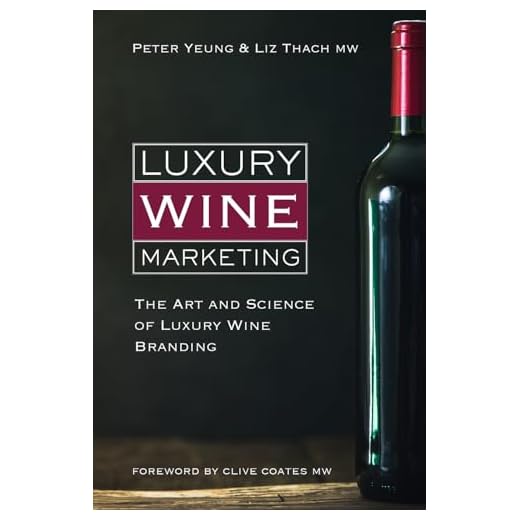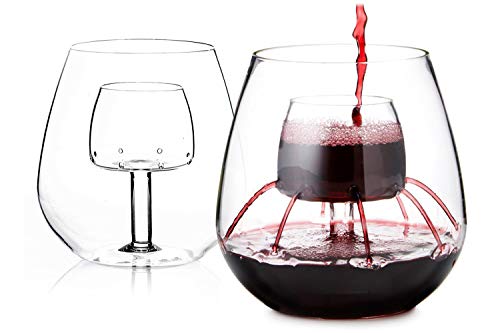For those curious about the parent company behind this popular Italian beverage, the answer lies with the San Antonio Winery. Established in 1917, this family-owned winery has been dedicated to producing high-quality wines that capture the essence of Italian tradition.
San Antonio Winery has expanded its portfolio over the years, making a name for itself in the competitive market of sweet and semi-sweet wines. This particular label has gained significant attention for its approachable flavors and vibrant character, appealing to a diverse audience seeking delightful drinking experiences.
If you’re looking to explore this enticing label further, consider visiting the San Antonio Winery’s tasting rooms or exploring their extensive selection online. Their commitment to quality and community makes every bottle a representation of their storied history and passion for winemaking.
Ownership Insights into the Popular Beverage Brand
The beverage brand is owned by the Riboli Family, who established their winery in Los Angeles in 1917. This family-run business has maintained a strong presence in the industry for over a century, focusing on producing high-quality, affordable selections. Their commitment to craftsmanship and tradition is evident in every bottle.
Key Details about the Brand
- Founded: 1917 by the Riboli Family.
- Location: Based in Los Angeles, California.
- Product Range: Known for semi-sweet and sparkling varieties, appealing to a wide audience.
- Distribution: Widely available across the United States and in select international markets.
The family emphasizes sustainability and innovation, ensuring their products remain relevant in a competitive market. Their approach combines traditional winemaking techniques with modern practices, allowing them to create distinctive flavors that resonate with consumers.
Why the Brand Stands Out
- Accessibility: Offers a range of options at various price points, making it easy for all to enjoy.
- Flavor Profile: Focuses on approachable sweetness, catering to diverse palates.
- Community Engagement: Actively involved in local events and initiatives, reinforcing their commitment to the community.
For anyone seeking quality and value in their choices, this beverage brand is an excellent option, reflecting both tradition and modernity in its offerings.
History of Ownership of This Renowned Brand
In the early days, the brand was established by the Riboli family, who recognized the potential of producing high-quality, semi-sweet wines that appealed to a broad audience. The family had a vision to create a product that would resonate not only with traditional wine drinkers but also with those new to the experience. Their dedication to maintaining quality and fostering growth led to significant developments in production techniques and marketing strategies.
Expansion and Recognition
Throughout the years, the brand expanded its offerings, introducing a variety of flavors and styles that captured the attention of consumers. The strategic decision to focus on approachable and enjoyable wines resulted in rapid growth. As a result, the brand became synonymous with fun and celebration, making it a staple at gatherings and events. The innovative approach to marketing, utilizing social media and influencer partnerships, further propelled its visibility and popularity in the competitive market.
Legacy and Future Directions
Today, the legacy of the Riboli family continues to thrive, with a commitment to quality and innovation at the forefront. The brand remains dedicated to crafting wines that delight the palate and enhance social experiences. For those interested in capturing the essence of these moments, investing in a camera is essential. Consider checking out the best aspc mirrorless cameras for beginners to document your wine adventures and pairings. This dedication to both tradition and progress ensures that the brand will remain a favorite for generations to come.
Current Owners of Stella Rosa Wine
The brand is currently managed by the Riboli family, who have been integral to its growth and popularity. Their expertise in the wine industry, combined with a focus on quality and consumer preferences, has positioned the brand as a leading choice among wine enthusiasts.
Riboli Family Background
The Riboli family has a rich heritage in winemaking, tracing back to their origins in Italy. They established their winery in California, where they successfully introduced a range of products that cater to diverse palates. Their commitment to quality and innovation has allowed them to capture a significant market share.
Market Positioning
This brand distinguishes itself with its approachable flavors and attractive packaging. The Riboli family’s strategic marketing initiatives have resonated well with consumers, reflected in the increasing sales figures. They continuously adapt their offerings to meet evolving tastes, ensuring their wines remain relevant in a competitive marketplace.
| Year | Significant Events |
|---|---|
| 1980 | Riboli family enters the wine industry. |
| 2000 | Launch of the brand, focusing on semi-sweet wines. |
| 2010 | Expansion into new markets and demographics. |
| 2020 | Significant growth in sales and brand recognition. |
Impact of Ownership on Quality of Italian Varietals
Ownership directly influences the quality and characteristics of Italian varietals produced under the current management. The commitment to maintaining high standards in vineyard practices and production techniques is paramount. The current proprietors prioritize sustainable agriculture and meticulous vineyard management, ensuring that grapes are harvested at their peak ripeness. This focus on quality directly translates into the final product, offering customers a superior tasting experience.
Investment in Technology and Expertise
Financial backing from the current ownership allows for investments in cutting-edge technology and hiring skilled enologists. This combination fosters innovation in fermentation techniques and aging processes, enhancing the complexity and flavor profiles of the beverages. Regular training for staff ensures that everyone involved in production is aligned with the vision of quality and excellence.
Brand Identity and Market Position
The stewardship of the brand plays a crucial role in maintaining its identity. The current team emphasizes consistency while also exploring new trends in consumer preferences. This adaptability helps to attract a broader audience while retaining loyal customers. The brand’s reputation for quality is bolstered through targeted marketing strategies, which highlight the unique attributes of the products and the meticulous care taken in their production.
Distribution and Marketing Strategies by Owners
Effective distribution and marketing strategies are paramount to the success of this brand. The current management emphasizes a multifaceted approach, focusing on both traditional and modern methods to reach consumers.
- Targeted Demographics: The brand specifically targets younger consumers, leveraging social media platforms to create engaging content that resonates with their lifestyle.
- Strategic Partnerships: Collaborations with restaurants and bars have been established to enhance brand visibility. Exclusive offerings in these venues attract a clientele that appreciates quality.
- Event Sponsorship: Participation in wine festivals and food events allows the brand to connect with potential customers directly, offering tastings and promotional deals to encourage trial.
- Retail Promotions: Frequent in-store promotions and discounts create excitement and encourage purchases, particularly during peak seasons or holidays.
- Influencer Marketing: Engaging influencers to promote products has proven effective, as their endorsements reach a wider audience and build credibility.
Moreover, the management employs data analytics to gauge consumer preferences and adapt marketing strategies accordingly. This approach ensures that the brand stays relevant and meets the evolving needs of its audience.
By focusing on these strategies, the ownership not only enhances brand presence but also reinforces the quality and accessibility of their offerings, ensuring a loyal customer base.
Future Ownership Trends in the Wine Industry
As a connoisseur of fine beverages, I see a growing trend towards consolidation among producers. Larger corporations are acquiring smaller brands to expand portfolios and reach diverse markets. This will likely lead to a homogenization of flavors, as mass production often prioritizes efficiency over artisanal craftsmanship.
Additionally, the shift towards sustainability cannot be overlooked. Ownership structures that prioritize eco-friendly practices will gain traction. Consumers increasingly seek brands that reflect their values, driving demand for organically produced and biodynamically farmed options.
The rise of e-commerce is another factor shaping future ownership. As direct-to-consumer sales platforms flourish, wineries must adapt to maintain relevance. This trend encourages smaller labels to innovate in marketing and distribution, allowing them to compete more effectively against larger entities.
Investment in technology is crucial. Owners who leverage data analytics for consumer insights are likely to outperform competitors. Understanding market trends and adjusting offerings accordingly will be essential for success in a rapidly changing marketplace.
Lastly, a focus on experiential offerings will redefine ownership strategies. Wineries that create unique tasting experiences or engage with communities will build stronger brand loyalty. This approach not only enhances customer engagement but also fosters a deeper connection to the product.








